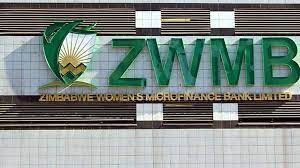
On January 6 this year, the registrar of Microfinance Institutions (hereinafter ‘the registrar’) released a Press statement highlighting that following an onsite examination of the Zimbabwe Women’s Microfinance Bank Limited in December 2022, corporate governance weaknesses were identified at the institution.
This is not the only institution that has been found wanting in corporate governance practices in Zimbabwe’s microfinance sector.
In fact, in years past, a number of microfinance institutions have had their licenses withdrawn for failure to adhere to sound corporate governance. This article unpacks what corporate governance practices must be observed by microfinance institutions, in terms of the law.
So what exactly is a microfinance institution? Microfinance institutions generally provide financial services to those members of the community that would ordinarily not be able to open a bank account or access loan facilities in the mainstream banking sector because of stringent requirements. Internationally, the main objective of microfinance is facilitating access to financial services by the poor and marginalised sections of the community.
In Zimbabwe, microfinance institutions are regulated by statutes, largely the Microfinance Act [Chapter 24:29]. They are regulated by the Reserve Bank of Zimbabwe (RBZ), and must be registered with the RBZ to operate. RBZ is tasked to ensure that all microfinance institutions are registered in accordance with the Act and comply with the laws of the country.
Corporate governance in microfinance is the internal system of rules relating to sound control and risk management, that regulates how board of directors create an appropriate business environment and standards/processes to be followed in the day-to-day activities.
The goal being to establish proper monitoring and control frameworks of activities. Good governance in this regard, will allow for ethical growth and sustainability of the microfinance in the economy, so as to achieve the mission and vision of the microfinance, while protecting the interests of all stakeholders.
In Zimbabwe, and particularly from a corporate governance perspective, microfinance institutions have a wide range of obligations to adhere to, mandated by the law.
- Mavhunga puts DeMbare into Chibuku quarterfinals
- Bulls to charge into Zimbabwe gold stocks
- Ndiraya concerned as goals dry up
- Letters: How solar power is transforming African farms
Keep Reading
- i) The board
The law requires that the operations of every microfinance institution be directed by a board of directors. The board must consist of at least three directors, where the microfinance is a credit-only microfinance institution, and five directors, where the microfinance is a deposit-taking microfinance institution.
The legislation clearly states that the principal duty of the board is to formulate policies relating to the institution’s microfinance business and supervise that business.
The law further mandates that every board in the microfinance industry appoint an independent and non-executive chairperson, in line with international standards.
Moreover, the Finance minister may prescribe the number of executive, non-executive and independent directors to be on the board of every microfinance institution. It is, therefore, critical for the board of directors in the microfinance industry to have an appointed qualified legal advisor to update the board on any statutory changes made by the minister.
- ii) Appointment of directors
Before an individual can commence exercising any functions as a director in a microfinance institution, whether the said individual is a new appointee or a re-appointment, the registrar must approve appointment or re-appointment as the case may be.
In order for the registrar to approve the appointment or re-appointment of an individual to the position of director in a microfinance, the said individual shall be a “fit and proper person”.
Generally, at law the word “fit” has been taken to mean “qualified or suited to purpose, competent and deserving”, while the word “proper” has been taken to mean “excellent, admirable, commendable, fine, goodly, of high quality, of good character or standing, honest, respectable, worthy, fit, apt, suitable”.
The main consideration in this context is, therefore, whether in relation to the prestige, status, and dignity of the financial services sector, and the responsibility, standards of professional conduct and integrity of microfinancers, the said individual appointed to be a director, has shown himself or herself to be a fit and proper person.
In addition, anyone disqualified from being a director in terms of the Companies and Other Business Entities Act [chapter 24:31] cannot be approved as a director in a microfinance by the registrar.
The implications of purporting to be a director of a microfinance without the registrar’s approval are quite dire, not only for the individual themselves, but also for the microfinance institution as well as fellow directors on the board.
Specifically, for a person who has knowingly acted as a director without the requisite approval, that person and every other director of the microfinance institution concerned will be guilty of an offence and liable to a fine not exceeding level 5 or to imprisonment for a period not exceeding six months or to both. Furthermore, the microfinance institution itself will be guilty of an offence and liable to a fine not exceeding level 5.
iii) Fiduciary duties of the board
In addition to the common law fiduciary duties of the directors of the board, the law requires that directors in microfinance institutions exercise a duty of care and skill when carrying out their duties. In particular, directors sitting on microfinance boards have the added responsibility of:
- acting bona fide for the benefit of the institution and for the benefit of its depositors and shareholders; and
- avoiding any conflict between their personal interests and the interests of the institution and its depositors and shareholders; and
- possessing and maintaining the knowledge and skill that may reasonably be expected of a person holding a similar appointment and carrying out similar functions as those that they carries out; and
- exercising such care in the carrying out of their functions in relation to the institution as may reasonably be expected of a diligent person who holds the same appointment under similar circumstances, and who possesses both the knowledge and skill mentioned in paragraph (c) and any additional knowledge and skill that he or she may have;
- attending at least three-quarters of the meetings of the board of his or her institution that are convened during any period of a year.
Any director of a microfinance who is found to have knowingly acted negligently, fraudulently or without regard for the requirements provided in terms of the law, is jointly and severally liable with the institution for any loss or damage suffered by creditors, including depositors, of the institution. Thus the importance of the Act cannot be emphasized enough.
- iv) General corporate governance
In promoting the principles of international best practice in corporate governance, namely transparency, responsibility, accountability, disclosure and internal controls, the law in Zimbabwe mandates every microfinance institution to have a code of conduct.
The board must also develop and regularly review operating guidelines and procedures to guarantee that clients and/ or potential clients are handled with dignity, respect and sensitivity when dealing with the microfinance.
It is also their duty to ensure that their employees are trained and prepared to implement the guidelines and procedures.
Microfinance institutions have a duty to keep their customers’ personal information strictly confidential unless required to disclose it by a court order or for the purpose of legal proceedings.
The law further requires commitment by the chief executive officer of the microfinance, to adhere to corporate behaviour that is universally recognised and accepted as correct and proper.
In addition, there must be accountability on the part of the board and chief executive officer, towards shareholders.
The board must also ensure that timely and accurate disclosures on matters that, are material to the business of the microfinance institution or the interests of its shareholders and other stakeholders, are made.
Microfinance institutions play a vital role in the delivery of financial services to the poor and under-banked in Zimbabwe. Commonly, these day a majority of these institutions are for-profit, limited liability companies, the ownership of which is in the hands of multiple shareholders.
With the rise in the number of registered microfinance institutions in the country, and the strict penalties levied by the regulator for non-compliance with the law, it is critical for micro finance institutions, both large and small, to acquaint themselves with and adhere to the provisions of the law.
It is well known that good governance is not automatic. It must be developed over time, and the law in Zimbabwe provides any microfinance a great start in implementing sound corporate governance practices.
Boards should engage in the activities discussed in this article, in order to assure that they grow in their ability to take responsibility for their microfinance and lead them into the future, without facing the dire legal penalties for non-compliance.








